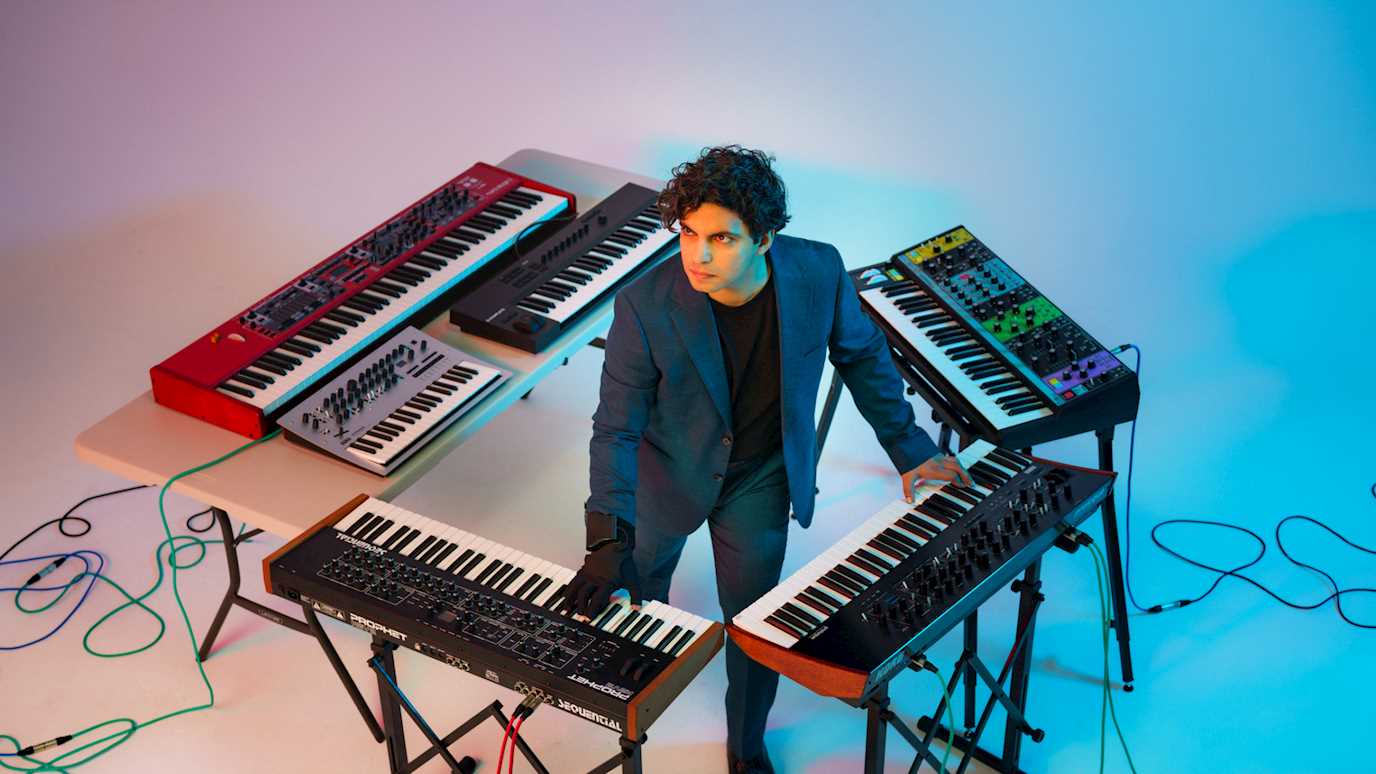Zubin Kanga and Mark Dyer co-edited a just published Special Issue of Contemporary Music Review: The Performer as Posthuman Assemblage: Performer-Machine Interactions in Contemporary Music.

Zubin Kanga, photographed by Raphael Neal
This Special Issue includes a huge range of articles by Jenn Kirby, Lauren Redhead, Ben Carey, Lia Mice/Andrew McPherson, Linda Jankowska, Mark Dyer, Zubin Kanga and an interview with Jennifer Walshe. The topics covered include the challenges of improvising with AI, the design of large hybrid digital-percussion instruments, the material agency of modular synthesizers, the specialist virtuosity required to perform with interactive technologies, the use of haptic technologies in amateur ensembles, the changing role of the organ in works with electronics, theoretical models about the relationship between the body of the performer and digital technologies, and the role of disabled artists in innovating new approaches to gesture-controlled instruments.
About Contemporary Music Review
Contemporary Music Review is an interdisciplinary forum for research in and about music now. Our six issues per year feature articles and essays across a broad spectrum of global contemporary music research as well as reports, bibliographic studies, interviews, scores and translations. Interested guest editors may submit proposals for themed issues addressing any topic in contemporary music studies, including analytical, cultural, environmental, historical, scientific, social, and technological approaches. Individual authors may contact the Editor to inquire about their article’s fit in an upcoming themed issue.
Since Contemporary Music Review first appeared in 1984, its editors have fostered an open and pragmatic view of the journal’s scope. We seek ambitious, critical and rigorous work on the culture, history, psychology, sociology, politics and aesthetics of contemporary music wherever it occurs and however it may be identified when it is occurring. We also seek to cultivate reflection on musical and musicological responses toward “the contemporary” as a multiple and shifting cultural, ecological, epistemic, historical, sociological and technological condition. Therefore, we especially invite proposals for themed issues that both: 1) contest the globality/locality of and propose alternatives to generic concepts of contemporary music such as “Western Art Music since 1945”; and 2) explore alternative contemporaries in different technological, social, geohistorical, environmental, cultural, biological and aesthetic landscapes. Please get in touch if you are unsure about your topic’s relevance.
Read it now
View the Special Issue: https://www.tandfonline.com/toc/gcmr20/42/3?nav=tocList























